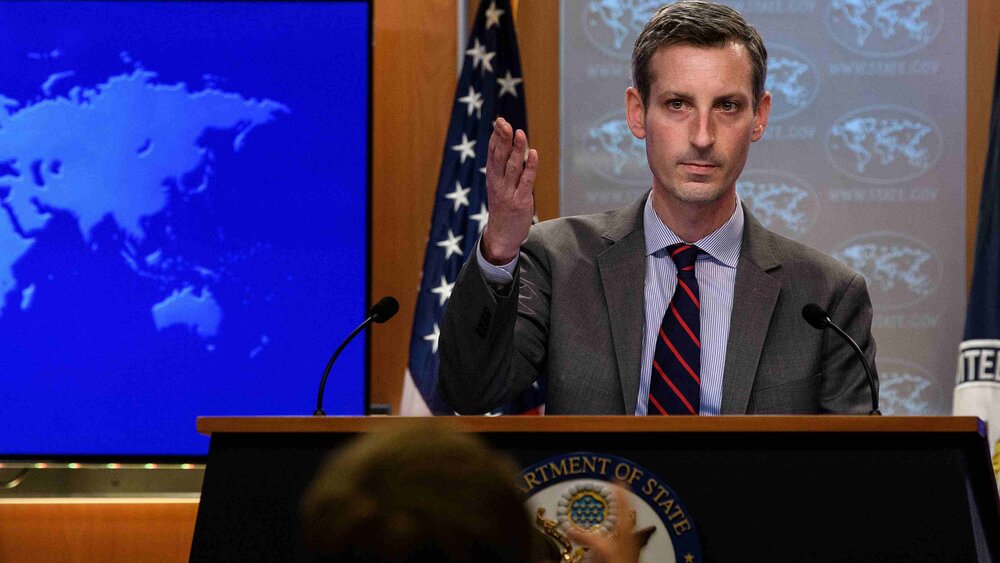No one gets smarter by talking

TEHRAN - In the latest sign that Washington is still not ready to make the necessary political decisions required to conclude nuclear talks, a U.S. official accused Iran of being unwilling to return to the 2015 nuclear deal.
U.S. State Department spokesman Ned Price said recently, “The United States and our partners within the P5+1 are committed to the course of a mutual return to compliance with the JCPOA, but the key adjective there is ‘mutual.’ To date, we have not seen any indication that Iran is ready or willing at this stage to return to the JCPOA.”
The remarks came at a time when the talks over reviving the 2015 nuclear deal, officially known as the Joint Comprehensive Plan of Action (JCPOA), have come to a standstill due to the U.S. unwillingness to make the necessary political decisions.
Nasser Kanaani, the spokesman for the Iranian foreign ministry, responded to the U.S. blaming the hiatus in talks on Iran. He said Iran is still a party to the nuclear deal and is ready to reach a good and strong deal.
“Iran has been & still remains a JCPOA member. The party that needs to prove ‘good faith’ & ‘seriousness’ to ‘re-enter’ the deal is the US,” he said on Twitter, adding, “We remain committed to reaching a good, strong & lasting agreement that guarantees JCPOA-envisioned benefits for Iran. The onus is on the U.S.”
The latest round of nuclear talks was held in Doha, Qatar, without any concrete results. After the Doha talks, Iran said the reason for not concluding the talks was the U.S. abstention from making the necessary political decisions. On the other hand, the U.S. leveled a similar accusation against Iran, which many pundits believe is part of the blame game.
Iran’s lead nuclear negotiator, Ali Bagher Kani, has recently briefed Iranian lawmakers on the latest developments surrounding the nuclear talks. Abolfazl Amouei, the spokesman for Parliament’s National Security and Foreign Policy Committee, said the lawmakers sitting on the committee stressed the need for obtaining sufficient guarantees from the U.S. in the event of a return to the nuclear agreement.
According to Amouei, Bagheri Kani said in the meeting that talks between Iran and the P4+1 group of countries continue through the European coordinators, Josep Borrel and Enrique Mora. The latest phone conversation between Iranian Foreign Minister Hossein Amir Abdollahian and EU foreign policy chief Borrel took place in mid-July.
In the phone conversation, the Iranian foreign minister stated, “There is no doubt in the government of the Islamic Republic of Iran’s determination to reach a good, strong and lasting agreement.”
The head of the Iranian diplomatic apparatus expressed gratitude to Borrell and Mora for their continuous efforts.
While appreciating the Islamic Republic for its initiatives to overcome the obstacles and resolve some remaining disputes to reach a final agreement, Borrell emphasized the readiness of him and his deputy to accelerate the process by communicating and consulting with all parties.
Borrell added, “I believe months of efforts should lead to a result and I will continue my efforts to bring the views of Iran and the United States closer to reaching a point of agreement.”
Also, the presidents of Iran and France, Ayatollah Ebrahim Raisi and Emanuel Macron, discussed the nuclear talks in a recent phone conversation. In the call, President Raisi said, “The Islamic Republic of Iran considers reaching an agreement dependent on the full resolution of safeguards issues and the provision of necessary guarantees, including the continued valid adherence of the parties to the agreement and the provision of the economic interests of the Iranian nation.”
Pundits believe that the ongoing talks over the JCPOA have shown that Iran seeks concrete results not just talks for talks. Whether the U.S. wants the same thing remains an open question.
Leave a Comment